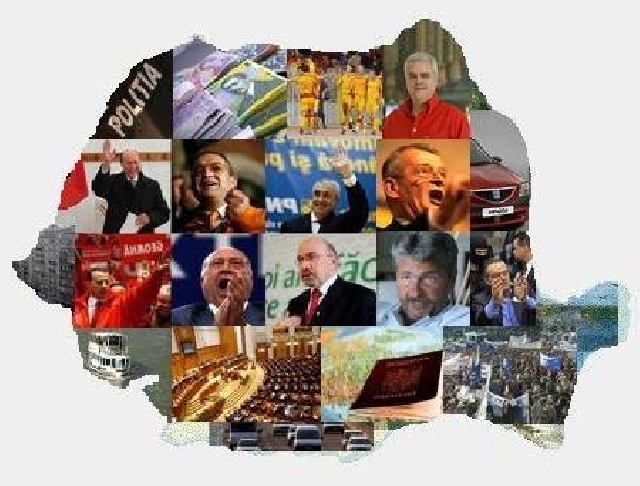The Week in Review, February 10 – 14
Talks within the Social Liberal Union

Florentin Căpitănescu, 15.02.2014, 12:14
Talks within the Social Liberal Union
Social Liberal leaders have reached a deadlock in negotiations with respect to the new structure of the Government. The talks between the Liberals, who want to bring in a couple of new names in the Government, and the Social Democrats, question the very future of the Social Liberal Union. Whereas the Liberals’ nominations for the positions of Economy, Health and Finance Ministers met no opposition during negotiations, the same cannot be said of the Interior Minister and Deputy Prime Minister offices, now vacant. The bone of contention is the Liberal Klaus Iohannis, the Mayor of Sibiu, whom the Liberals want to hold both mandates at the same time. The Social Democrats, alongside the National Union for the Progress of Romania and the Conservative Party, seem to agree to the Liberals’ request, although they want the number of deputy prime minister positions to be increased from three to four, one for each party in the ruling coalition. Pointing to the weak electoral performance of the Conservative Party, which throughout its history has struggled to meet the election threshold, the Liberals are firmly against a deputy PM office assigned to the Conservatives. Dissentions over the future Government structure and the emergence of the Social Democratic Union, made up of the Social Democratic Party, the Conservative Party and the National Union for the Progress of Romania have fuelled rumours according to which the break-up of the Social Liberal Union is imminent. Political pundits argue the ever-growing ambitions of Social Democrats and Liberals alike put the Union at risk.
The Government plans to introduce new economic measures
The National Bank of Romania has denied the accusation made by President Traian Basescu, according to whom the central bank interfered with the rescheduling of loan payments for people with incomes below the average net salary. In a public announcement, the National Bank said it had made no monetary or banking policy decision with respect to rescheduling loans. President Basescu has termed the measure as unfair for those people who repay their loans on time. Prime Minister Victor Ponta has announced the Government will adopt an emergency ordinance enabling people with monthly incomes of up to 350 euros to negotiate with the banks the reduction of their monthly loan payments by a half, over a period of two years. Economic pundits say the measure would benefit as many as 1 million Romanians. This is not the only measure the Ponta Cabinet is preparing for people with low incomes. If the current flat tax system is replaced with a progressive taxation scheme, low incomes will be subject to taxes ranging from 8 to 12%, instead of 16% at present. The Government claims this is a growth-oriented measure aimed at stimulating the private sector and making more jobs available.
The Constitutional Court rules against the Decentralization Law
The Constitutional Court of Romania has explained its ruling last month against the decentralization law. The Court claims the law contains ambiguous provisions, certain legislative flaws and conflicting regulations. Moreover, Court magistrates argue, the deadlines provided by the law are too short, and there is a lack of impact studies or cost standards. In November 2013 the Government sought Parliament’s vote of confidence over the decentralization law, harshly criticized by the opposition in its current form. The law mainly targeted such areas as agriculture, health, the environment, culture, youth and sports. Decentralization is seen as a prerequisite stage for regionalization, the most ambitious project in post-communist Romania.
US — Romanian cooperation
The US takes a keen interest in Romania’s success as a democratic partner with a strong rule of law, and wants the two countries to hold joint global responsibilities and continue their strategic partnership. The statement belongs to US vice-president Joe Biden and was made during a telephone conversation with president Traian Basescu. On that occasion, the US official expressed his gratitude for Romania’s contribution to NATO operations. As a token of good bilateral relations, Romania will host a US military base of operations, including facilities part of the US anti-ballistic shield in Europe. Although relations between Bucharest and Washington seem closer than ever under the Strategic Partnership signed in the late 1990s, there is still room for improvement. US investment in Romania is still insufficient, while Romanians still need to get a visa before traveling to the United States.





























